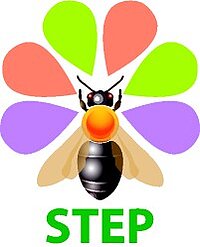STEP
STEP: Status and Trends of European Pollinators

Ingolf Steffan-Dewenter, Andrea Holzschuh, Verena Riedinger
Funding: EU (FP 7)
Duration: March 2010 – February 2015
Subproject: Empirical assessment of multiple pressures on pollinators and pollination services across Europe (WP 5)
The STEP project assesses the impact of our changing environment on pollinators and their pollination services. Our aim is to study the relative importance of potential pressures such as land-use changes, habitat loss and fragmentation, climate change, agrochemicals, pathogens and invasive plants. Our main focus lies on the question how an increase in the cultivation of pollinator-attractive (biofuel)- crops affects pollinators and their pollination service. Here we are interested in consequences for both crop yield and wild plants in semi-natural habitats, which potentially compete for pollinators. Another main focus lies on mitigation strategies which might help to counteract the negative effects of current land-use changes. Here we test the efficiency of sown flower strips in promoting pollinators in agricultural landscapes.
Species group: wild bees, honeybees, hoverflies
Habitats: oilseed rape, sunflower, calcareous grasslands, field boundaries, flower strips
Study regions: Würzburg, England, Sweden, the Netherlands, Spain, Serbia.
Methods: pollinator Monitoring, GIS
More informationen: www.step-project.net








